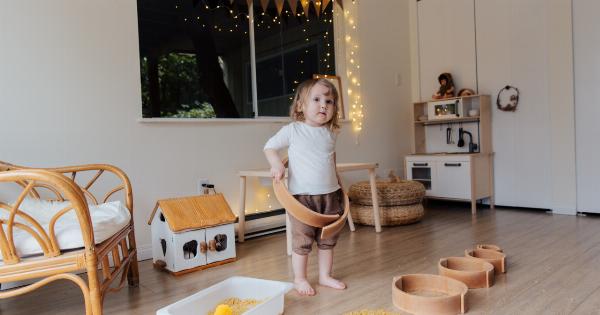Hot weather can be challenging for babies as they are more sensitive to heat and can easily become dehydrated or develop heat-related illnesses.
As a parent, it is important to take necessary steps to ensure your baby stays cool and comfortable in hot weather. Here are some essential tips for baby care during hot weather:.
1. Dress Your Baby Appropriately
When it’s hot outside, dress your baby in loose-fitting, lightweight clothing made of breathable fabrics like cotton. Avoid synthetic materials as they can trap heat and cause discomfort.
Opt for light colors to reflect the sunlight and keep the body cool.
2. Protect Your Baby from the Sun
Babies under six months should be kept out of direct sunlight as their delicate skin is more prone to sunburn.
If going outside is unavoidable, use a wide-brimmed hat and dress your baby in lightweight, long-sleeved clothing to cover their arms and legs. Apply a baby-safe sunscreen with an SPF of at least 30 on exposed areas, reapplying every two hours.
3. Stay Hydrated
Dehydration is a significant risk during hot weather. Ensure your baby is adequately hydrated by offering breast milk or formula more frequently. If your baby is six months or older, you can also offer small amounts of water in between feedings.
Avoid giving sugary drinks or fruit juices to newborns, as it can lead to diarrhea.
4. Create a Comfortable Sleeping Environment
Hot weather can disrupt your baby’s sleep. Ensure your baby’s sleep environment is cool and comfortable by using a fan or air conditioner. Keep the room well-ventilated and avoid using heavy blankets or excessive bedding.
Consider using lightweight, breathable sleepwear or just a diaper.
5. Be Mindful of Heat Rashes
Heat rashes can occur when sweat ducts become clogged, leading to itchy and irritated skin. Dress your baby in loose clothes that allow air circulation and avoid overdressing.
Keep their skin clean and dry, using a mild baby powder to prevent moisture buildup.
6. Provide Opportunities for Water Play
Water play can help keep your baby cool and entertained during hot weather. Fill a small baby pool with lukewarm water and supervise your baby closely while they splash and play.
Alternatively, you can use a spray bottle to mist your baby with water, providing a refreshing sensation. Ensure the water is not too cold to avoid shocking their system.
7. Limit Outdoor Activities during Peak Heat Hours
Avoid taking your baby outdoors during the hottest hours of the day, typically between 10 am and 4 pm. The sun’s rays are strongest during this time, increasing the risk of sunburn and overheating.
If you do need to go outside, seek shady areas and use a stroller with a sunshade or attach a parasol to protect your baby.
8. Use Cotton Sheets and Breathable Fabrics for Bedding
Choose cotton sheets for your baby’s crib as they are more breathable and help regulate body temperature. Avoid using plastic or rubber mattress protectors as they can trap heat.
Use lightweight, breathable blankets if needed, but ensure they are not heavy enough to cause overheating.
9. Keep Your Baby Cool in the Car
Car rides can become uncomfortable in hot weather, especially if your vehicle doesn’t have air conditioning. Prior to traveling, check the car’s temperature and use sunshades on the windows to block out direct sunlight.
Dress your baby in lightweight clothing and bring along a battery-operated fan to provide a breeze.
10. Be Vigilant for Signs of Heat-Related Illnesses
It’s crucial to be aware of the signs of heat-related illnesses in babies, such as heat exhaustion or heatstroke. Watch for symptoms like excessive fussiness, rapid breathing, flushed skin, lethargy, dry mouth, or lack of sweat.
If you notice any of these signs, immediately contact a healthcare professional.


























